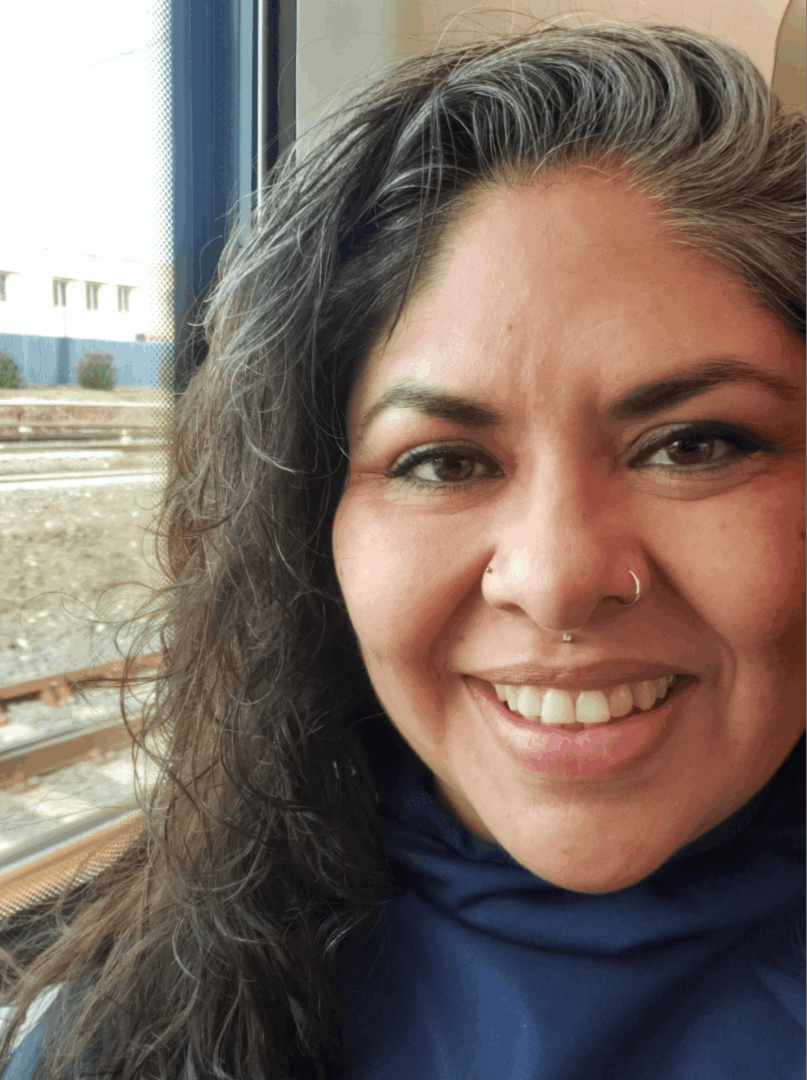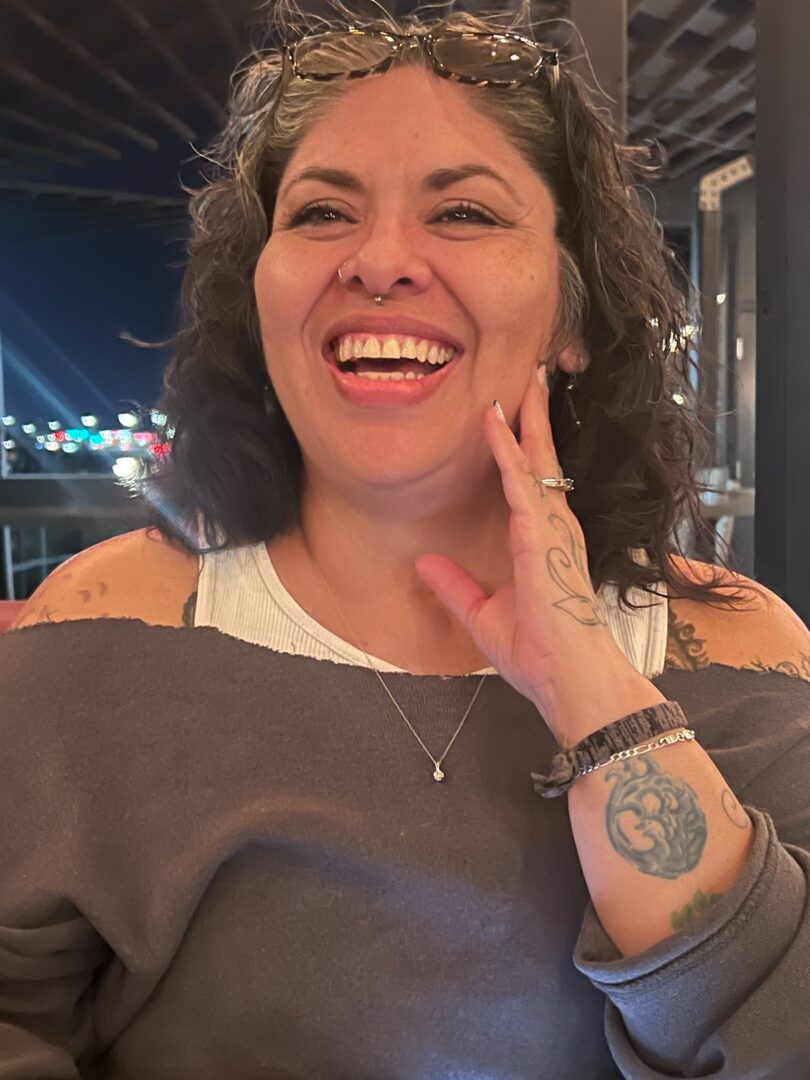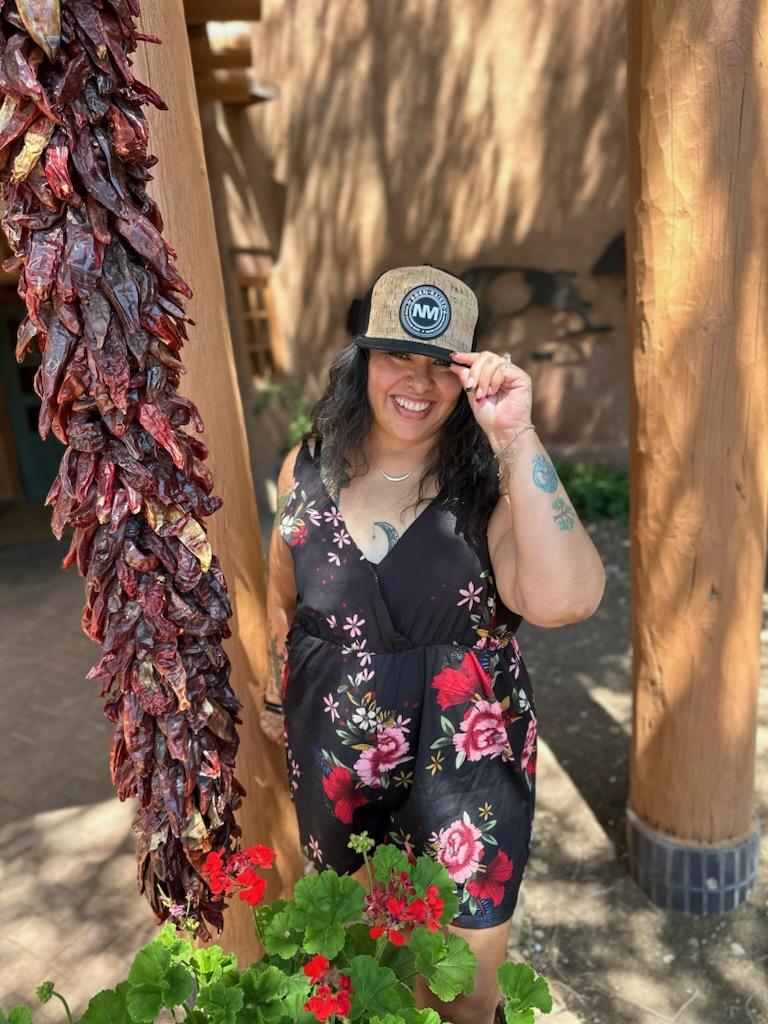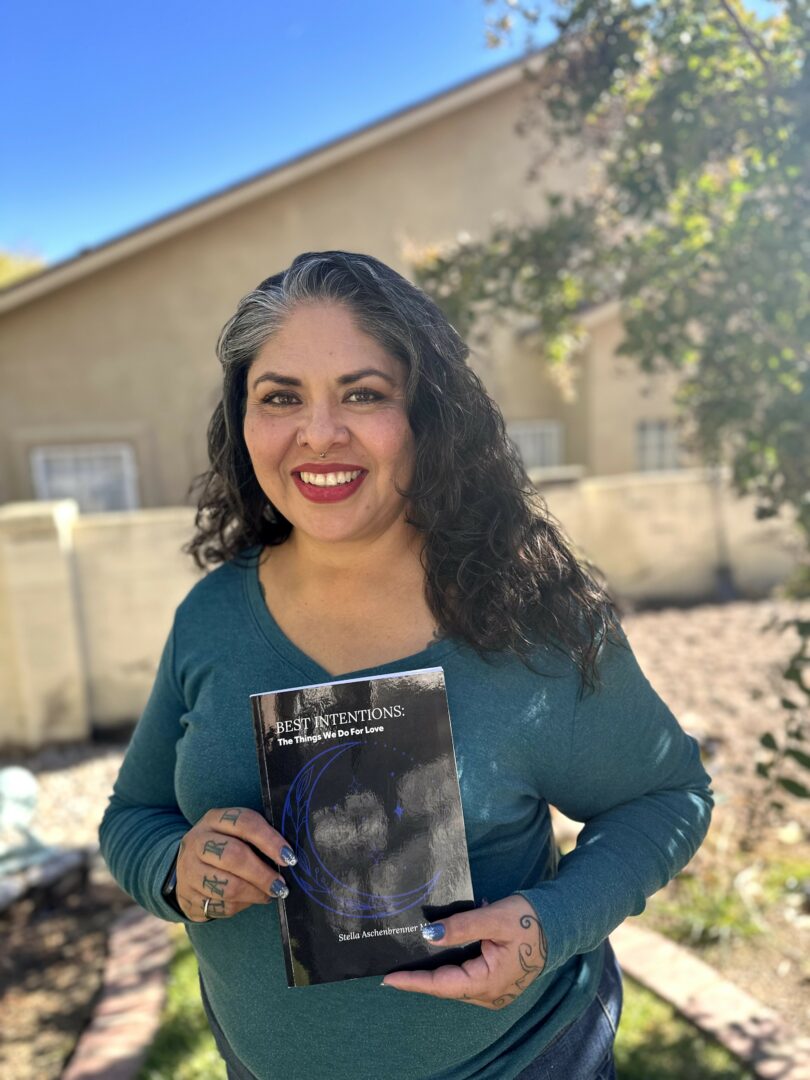We’re excited to introduce you to the always interesting and insightful Stella Aschenbrenner. We hope you’ll enjoy our conversation with Stella below.
Hi Stella, appreciate you sitting with us today to share your wisdom with our readers. So, let’s start with resilience – where do you get your resilience from?
In general, I believe resilience is often born from loss and failure. Loss, in particular, has been a significant teacher in my life, revealing some of life’s hardest lessons. I was sixteen when I lost my father, and as the oldest of six children, I shouldered the responsibility of helping my family adjust to the devastating absence of our provider and protector. My mother became our sole parent, filling the roles that both parents had once shared. No one can truly prepare for that kind of loss. My journey of rebuilding and learning to rise above challenges began in adolescence as I supported my mom in caring for my younger siblings.
After that, I experienced a series of setbacks and adjustments. I struggled with finding my purpose, getting kicked out of three colleges along the way. Despite my natural curiosity and aptitude for learning, I initially had trouble discovering what truly excited me. But on my second attempt at Adams State College (now University), I found my passion in psychology. Fascinated by the connections between brain and behavior, I immersed myself in psychology, biology, and chemistry, building a foundation in physiology alongside an understanding of mood and personality disorders. This knowledge fueled my drive to support others through their own transitions, helping them overcome losses and setbacks to achieve their goals.
Initially, I had no intention of pursuing clinical work, but after my third attempt and third college (the University of New Mexico, which also asked me not to return), I was accepted into a master’s program in counseling—and never looked back. I graduated in 2012 and began my career as a mental health therapist. Learning to run a successful practice was challenging, but with the guidance of great mentors, I overcame the obstacles. In 2022, I closed my practice for a year to travel, needing to regroup after the toll of the pandemic. With $18,000, I sold my belongings, packed two bags, and traveled across four countries in Europe to write a book on codependency called “Best Intentions: The Things We Do for Love”. Along the way, I hosted a successful podcast and created social media content, building a surprising following and connecting with people worldwide. I returned in the spring of 2023, rebuilding my practice with the support of friends and family.
Looking back, I’d say I’ve become quite skilled at rising again.

Thanks for sharing that. So, before we get any further into our conversation, can you tell our readers a bit about yourself and what you’re working on?
I founded Luna X2 LLC in the fall of 2012, beginning my career as a contract therapist with a local agency to gain experience in supporting others on their healing and growth journeys. I worked there until I completed the independent licensure exam and earned my status as a Licensed Professional Clinical Counselor. In 2016, I opened my private practice, initially with a small office on one side of town and meeting clients in my home on the other. I built a thriving practice in a relatively short time, specializing in anxiety, trauma, communication, postpartum support, and boundaries, working with teenagers, adults, individuals, couples, and families.
I began designing workshops on codependency, relationship skills, anxiety management, and more. From my codependency workshop, I developed the concept for my book, identifying a need for a fresh approach to understanding and addressing codependency outside of the addiction model. While traveling and writing, I also developed a short-term coaching model focused specifically on setting and maintaining healthy boundaries. I help clients shift from seeking acceptance, validation, and love from others to first learning how to love themselves.
Through the LX2 Codependency Coaching podcast, I’ve been able to teach people globally about managing issues that lead them to overextend themselves in hopes of acceptance. I post podcast videos on my Instagram page, @Luna_X2_llc, where I share honest and vulnerable stories, combined with clinical insights, to help people reflect on their own choices and behaviors. This process helps them build self-awareness and make meaningful changes in relationships they wish to improve.
My book, “Best Intentions: The Things We Do for Love”, is structured with prompts to guide readers in recognizing the changes they can make to love themselves better while enhancing the quality of relationships—whether formed by birth or choice.

Looking back, what do you think were the three qualities, skills, or areas of knowledge that were most impactful in your journey? What advice do you have for folks who are early in their journey in terms of how they can best develop or improve on these?
The three skills that have supported me most are self-awareness, work ethic, and a sense of humor. Over the past 52 years, I’ve dedicated myself to building self-awareness, a journey that has helped me embrace my deeply emotional nature. Through extensive practice and study of emotions, I’ve cultivated compassion for myself. Unlike today, parenting in my early years focused more on raising functional members of society than on nurturing emotional wellness or intelligence. This meant that I had to take long, sometimes painful, introspective looks at my behavior and how it impacted others. I learned to let my feelings exist without acting on them or allowing them to drive my reactions—a skill I’ve passed on to clients and used in parenting with tremendous results. In my view, self-awareness is one of the truest paths to healing and growth.
My work ethic was instilled early. I started working at 14, earning money outside the home, though I’d been helping my mom with my siblings since I was ten. My parents taught us responsibility and accountability from a young age, valuing independence and the hard work needed to build the life they wanted for us. My father held two jobs, working as a lineman for the public service company and serving in the U.S. Army National Guard, along with side jobs as an electrician to make extra income. My mom, an educational assistant in public schools, managed all domestic responsibilities for our large family. I understood why she needed the help of her older children. They both modeled the importance of education and community service, and those values stuck. Working hard as a kid taught me the hustle I carry with me today. Although I sometimes get overwhelmed or frustrated, I always get the job done—my career and success are testaments to the work ethic they instilled.
Humor has also been essential, particularly in forming connections with clients. I tend to have a dark sense of humor, shaped by experiences with trauma and depression, which I use to connect with people in meaningful ways. I’ve probably laughed with clients more than most therapists, and one colleague even noted that clients wanted to visit my office because it sounded more like a party than therapy. Humor helps clients tackle tough issues with a sense of ease, knowing they’re supported by someone who can sit with them in their struggles and guide them forward without judgment. I believe in the power of naming our issues and working through them. Humor allows clients to feel multiple emotions at once, and laughter provides enough relief to help them make it through. They’ve always come back for more, so I must be doing something right.

How can folks who want to work with you connect?
I’m passionate about working with counseling programs to teach the foundations of supporting clients who struggle with codependency. My own training program didn’t cover codependency, and it’s not part of the standard CACREP-accredited curriculum. I want to help counseling students recognize signs of codependency and equip them with essential boundary-setting skills. I would also like to work with established counselors and clinical social workers in the field to help them with these skills as well. With these tools, they can empower their clients to build healthy, strong, and honest relationships where they feel truly seen and valued.
For more information, please visit my website or social media.
Contact Info:
- Website: https://www.luna-x2-llc.com/
- Instagram: @luna_x2_llc
- Facebook: https://www.facebook.com/Lunax2.llc
- Linkedin: https://www.linkedin.com/in/stella-aschenbrenner-ma-lpcc-ncc-a0763952/
- Other: https://bio.site/LX2codependency

Image Credits
Leslie Marie Radigan
Regina Quintana Eversgerd
so if you or someone you know deserves recognition please let us know here.




